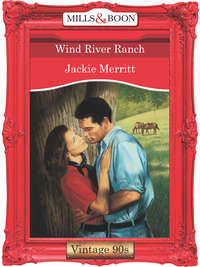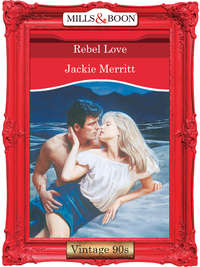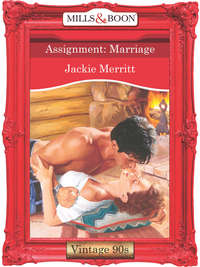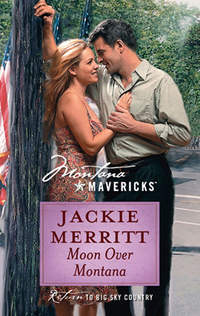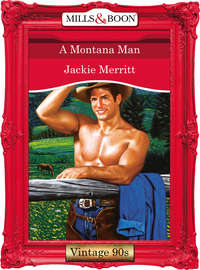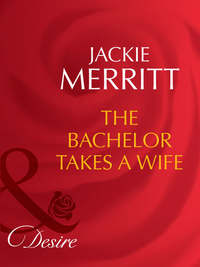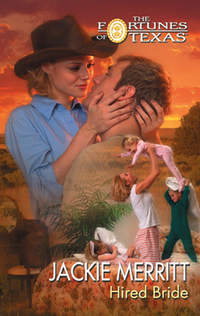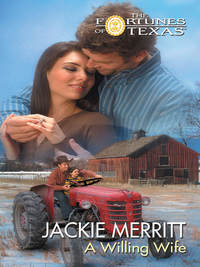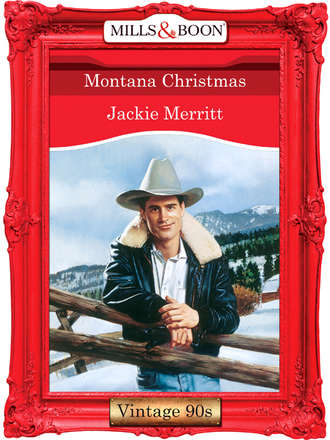
Полная версия
Montana Christmas
“Shep?”
Lucas was calling from the living room.
“I’m here, Dad.” Removing his jacket, Shep looked at Andrea. “I can hang it up myself, if it’s all right with you.”
Anything you want to do is all right with me. “Yes, of course. Go right ahead.”
They paraded into the living room. Shep spotted the fire. “That looks great.” He hung his jacket in the closet and immediately went over to the fireplace.
“You were out there a long time, son,” Lucas said. “You must be cold clear to the center of your bones.”
Shep turned around and stood with his backside to the fire. “I wasn’t walking all the time I was gone, Dad. I went home for a while.”
So, Andrea thought, inordinately pleased. He wasn’t a liar, after all. And he probably hadn’t been trying to avoid her and Lucas; he’d merely needed to be alone. Poor guy. Since he was so broken up over it, the divorce must not have been his idea.
“Well,” Andrea said brightly. “Is anyone hungry?”
“I could use a turkey sandwich,” Shep said, giving her another of those dazzling smiles.
“I can always eat,” Lucas said with a chuckle.
“Great. I’ll put everything on the table. It’ll only take a few minutes.” Breathless again, Andrea sped to the kitchen. The day had taken a marvelous turn, simply because Shep Wilde was smiling instead of scowling. His hike in the snow had worked some sort of miracle. Or maybe he was finally glad to be home for Christmas.
Or maybe, just maybe, he had come to grips with liking her. With finding another woman attractive so soon after his divorce. Hadn’t she noticed his brooding glances at the dinner table?
Hastily she sliced turkey and set the table, all the while thinking about Shep. Okay, she admitted, so she had it bad for him, and it could be very dangerous business. But what if he felt the same about her? Would a rebound romance be dangerous if both parties felt the same overwhelming emotions for each other?
“Don’t put the cart before the horse,” she muttered under her breath in a sudden burst of common sense. A few smiles were hardly an admission of attraction. And what was sadder than a person—man or woman—falling for someone who didn’t reciprocate? She really must watch her step around Shep, especially when Lucas was looking on. Appearing foolish or pathetic in Lucas’s eyes would be unbearable. No, she could never let that happen.
Squaring her shoulders, she went to the doorway between kitchen and living room. “Everything’s ready,” she said with an inviting smile. “Come and eat.”
Andrea enjoyed listening to Lucas and Shep talk about old friends in Rocky Ford while they ate. It occurred to her that Shep could be asking about this person or that just to make conversation, but she still read it as a good sign. At least he was trying, which was a lot more than he’d done before.
Most of the people mentioned were strangers to Andrea, but her ears pricked up and her pulse began racing when Shep asked, “And how are the Fanons doing?”
Lucas grinned. “That’s right. I’d forgotten you were sweet on Lola Fanon for a while.”
Shep grinned, too. “In high school, Dad. A very long time ago. Anyhow, do they still live around here?”
“Sure do. Charlie lives in the same house he always did, as a matter of fact. You know about his coffee shop, don’t you?”
“You took me there the last time I was home,” Shep reminded. “About eight years ago,” he added quietly.
Andrea saw a glint of remorse in Shep’s eyes. Obviously, he was regretting his long absence, probably feeling guilty over neglecting his father for eight long years.
Well, he should feel guilty, she thought to herself rather fiercely. If she ever connected with her father, she would never neglect him.
She cleared her throat. “I’ve run across the Fanon name several times. What kind of man is Charlie?”
Lucas answered. “Real nice guy, Andrea. I doubt if there’s anyone in Rocky Ford who doesn’t like him. If they’ve met him, of course.”
“What about the rest of the family?” Shep asked. “Does Ron still live here?”
“Ron’s dead, Shep,” Lucas said gently.
“Dead! What happened?” Shep inquired, obviously stunned.
“He died while in the military. I don’t know the particulars, but Charlie went to Germany—that’s where Ron was stationed—and brought his body back here for burial. Brought his wife and little boy with him, too. Candace-that was Ron’s wife—remarried about a month ago. Maybe a little longer.”
Shep fell silent for a few moments, then inquired quietly, “And Serena? Lola?”
“They’re both married and living in the area. Serena’s a lawyer with an office in the Ridgeport Building. Her husband, Travis Holden, owns a string of car lots all over Montana. Lola married Duke Sheridan and they, of course, live on the Sheridan Ranch. I’m sure you remember the Sheridans.”
Lucas’s knowledge of the Fanon family surprised Andrea, though she didn’t let on. But she was learning more about life in a small town all the time. Even if people weren’t close friends, they seemed to know what everyone else was doing. This was new to her. Sandra had always shied away from small communities, preferring cities and elegant neighborhoods where people were rather standoffish. Actually, Andrea had to admire her mother. While her life-style hadn’t been wonderful for her daughter, she had certainly gotten around, and however often they had moved, it had never taken Sandra very long to insinuate herself into a new neighborhood and become a part of it, however reserved and aloof the residents were.
And she’d been so beautiful. So stylish, so chic. Small wonder she’d attracted men by the droves.
Andrea sighed. While she’d obviously inherited some of her mother’s best physical features, she certainly hadn’t gotten much of her intrepidness. Nothing had ever daunted Sandra as facing Charlie Fanon daunted Andrea.
Around six, Lucas said it was time they went home. Andrea hated to see them go, but she put on a smile and saw them to the door. Just before leaving, Shep shook her hand again. “Thank you for today, Andrea. You’re a gracious hostess.”
Looking into his dark eyes, she again felt that constrictive band around her chest. If she counted every man she’d met in her whole life, Shep Wilde was the most handsome. And no other man had ever caused such volcanic reactions in her system, not even those she had liked and dated.
Lucas broke up the handshake by holding up the box he was carrying. “Thanks again for the gift, Andrea.”
She saw Shep look at the box, but he said nothing about it. Father and son walked out the door and called goodnights. It was dark outside and still snowing. The biting cold had Andrea quickly closing the door behind them.
Then, sighing, she went to the living room and added wood to the fire. It was too quiet now, and she put another CD into the player. Seated in her favorite chair, she laid her head back and thought about the day. Overall, it had been a good Christmas, she decided.
Far better than many she remembered.
Shep and Lucas hurried into the house. It wasn’t a night to linger outdoors, and Lucas’s modest home was warm and cozy. After hanging up their jackets, they sat in the living room. Shep could tell that his father wanted to ask questions, and he decided to make it easy for Lucas by telling him everything without prompting.
“She left me for another man,” he said bluntly.
Lucas looked stunned and incredulous. “Shep, are you sure?”
Shep gave a sharp little laugh, one with no humor in it whatsoever. “I’m sure. A friend told me she was seeing someone—using every subtlety in the book to say it without actually saying it. I called him a liar, backtracked and said he must be mistaken and then talked to Natalie that night, expecting denials and anger that anyone would intimate such a thing about her.” Shep’s expression became bitter. “She said it was true and asked for a divorce.”
Lucas was still stunned. “But, son, a woman who is happy and contented with her marriage doesn’t go looking for another man.”
Shep’s lips twisted cynically. “Maybe they don’t in Rocky Ford, but southern California isn’t Rocky Ford, Montana, Dad.”
“Are you telling me you never had a clue that something was wrong before your friend mentioned it? Incidentally, I don’t have a lot of respect for someone who’s supposedly a friend carrying tales like that.”
“If there were clues, I never picked up on them,” Shep said. “As for Jeff talking about Natalie like that, wasn’t he trying to do me a favor? It was damned hard for him to broach the subject, and he risked our friendship to let me know what was going on. I don’t hold anything against Jeff, Dad. It would have been worse for him to know about it and not say anything.”
Lucas shook his head sadly. “Don’t see how it could have been any worse, Shep. All this time, I believed your marriage was solid as a rock and that both you and Natalie were happy. Now, here you are, divorced and miserable. You two should have had kids.”
“So we could have fought over their custody? Kids don’t hold a marriage together, Dad. Only love does that. Apparently, Natalie didn’t love me.”
“She did at first, didn’t she?”
“I thought so,” Shep said, letting his bitterness show again.
“Well, at least you have your practice,” Lucas said, obviously assuming Shep would find comfort in his work.
Shep wasn’t ready to talk about that. He didn’t know what he was going to do about his career. He’d spent so many years in getting an education, and they’d been hard years. Lucas had helped out financially with what he could afford, but a medical education, especially when it included a specialty, was extremely costly. Those were years of doing without, of barely getting by, years when he’d done very little beyond studying, working at whatever job he could find to earn a few extra bucks and living without enough sleep.
He’d been interning at Los Angeles General Hospital, on the very last leg of his education, -when he met Natalie Draper.
Her world had dazzled him. She had dazzled him. Beautiful, vivacious and without a care in the world, Natalie had had hordes of friends, most of whom had seemingly existed for one reason—the next party, whether it be a fundraiser, the opening of one more elegant or campy restaurant, or film-industry events, such as the Academy Awards gala. Always dressed in designer clothing, Natalie missed nothing that Hollywood and its icons had had to offer.
It had taken Shep a while to believe that a fashionable, wealthy, gorgeous young woman like Natalie Draper would want him. He’d definitely been head over heels for her, but a penniless intern was so far from her realm of existence, it had been a massive shock to finally realize that she was truly serious about him.
She’d taken him home to meet Daddy—and Daddy’s third wife. Brad Draper hadn’t been nearly as charmed as Natalie was by an almost doctor with a yet unknown future. But Shep still to this day had to hand it to Brad; he’d put aside his own misgivings and eventually welcomed him into the family.
Ten years, Shep thought with another onslaught of bitterness. Ten years down the drain. He was back to square one, or damned near. No wife, no practice and very little money weren’t exactly consoling, especially when he hadn’t seen it coming.
What kind of fool had he been?
He suddenly realized that Lucas was watching him with an uneasy expression. But why wouldn’t his dad be uneasy? He hadn’t given him any kind of answer to his comment about him at least having his medical practice, had he?
Well, he had none to give. When he himself knew what was coming next, he’d be glad to inform Lucas about it. Getting to his feet, he stretched and yawned. “I’m beat, Dad. I’m going to hit the sack.”
Lucas frowned. “Well, sure, son. Go right ahead.” Before Shep made it out of the room, he added, “What do you think of my next-door neighbor?”
“Andrea’s a very nice person,” Shep said evenly, omitting deliberately so much as a hint of the libidinous urges she had aroused in him all day. “Good night, Dad. See you in the morning.”
“Good night, Shep. Sleep well.”
Three
Andrea slept well, but she awoke at 8:00 a.m. with prickly feelings of dissatisfaction. It had happened before in Rocky Ford, and she always blamed the sensation on impatience with herself over forever delaying that meeting with Charlie Fanon.
This morning, she wasn’t thinking of Charlie. The image in her mind’s eye was most definitely that of Shep Wilde. Too handsome, she told herself, even while tingling all over because he was so handsome. But Shep wasn’t the reason for the uneasiness she felt, either.
It took only a few minutes to come up with a logical diagnosis of the problem: there was no reason to get up. She could stay in bed for the rest of her life, and who would care? This doing nothing, or almost nothing, had to stop. It seemed she had made an unconscious decision to live in Rocky Ford, whether or not she ever introduced herself to Charlie, so it was time to start living.
And she knew precisely where the starting line was, too.
Throwing back the covers, she got up and padded barefoot to the kitchen to make a pot of coffee. A glance out the window to her backyard had her grimacing. Before she could put her plan in motion, before she could go anywhere, for that matter, she had to shovel the driveway again. It wasn’t snowing this morning, but there were at least six inches on the ground.
Returning to her bedroom, she dressed in warm clothing and lined boots. Heading for her small garage and the snow shovel, she stopped and blinked in surprise. Her driveway had already been shoveled!
Lucas, bless his heart, must have done it before she was even awake. What a sweetheart.
She would thank him later on today, she thought as she returned to the house. After she had called on Kathleen Osterman, the owner and publisher of the Rocky Ford News. Yes, she was going to ask Ms. Osterman about a job. If there was nothing available at the newspaper, she would look elsewhere, but her first choice was definitely the local paper.
After coffee, toast and orange juice in the kitchen, she showered, did her hair and makeup and dressed in an attractive gray wool pantsuit. Under the jacket was a plain black sweater with a high neck. Her jewelry was gold earrings, a gold-and-black onyx pin on the lapel of her jacket and her gold watch. Stepping into her best black leather boots, she checked her appearance in the full-length mirror on her closet door. Satisfied with her reflection, she donned a long, dark gray overcoat, pulled on black leather gloves, slung her black leather bag over her shoulder and left the house for the garage.
Raising the door of the garage, she got into her car and started the engine. Giving it time to warm up, she thought of how differently one lived where winter was a true season. Cars needed extra antifreeze and snow tires, and people needed a wardrobe of warm clothing. She had never owned a winter coat before this year, for instance. Fashionable ski suits, of course, but nothing like what she was wearing today. She had found some of her cold-weather clothes in Rocky Ford, and some she had purchased from catalogs. Her overcoat, for example, had been purchased from an exclusive and very expensive house of fashion through their catalog.
When the heater was blowing warm air, she quit her meandering thoughts and backed out of the driveway to the street. Granted, there were butterflies in her tummy over this unannounced visit to Ms. Osterman, but they were flutters of excitement. Just the thought of working again, having something to do and somewhere to go, was exhilarating. She should have looked for a job long before this.
Andrea drove to the newspaper office, found a parking space and walked into the one-story building. She loved it at once, from its unique smell of newsprint to its air of productivity. It wasn’t large and it wasn’t noisy, but newspapers were created here. She would love to be a part of it.
The front of the building was one large room. Several doors drew her attention; one had to lead to the pressroom. Two women sat at desks, one of whom was talking on the phone. The other looked up.
“May I help you?”
Andrea smiled. “I’d like to speak to Kathleen Osterman. Is she in?”
“Do you have an appointment?”
“Is an appointment necessary?”
“No, but I thought she might be expecting you.”
“She isn’t, but I really would like to see her.”
“I’ll check with her. What’s your name?”
“Andrea Dillon.”
The woman dialed a number on her phone. “Kathleen, there’s an Andrea Dillon out here who would like to speak to you. Do you have time to see her now?” After a beat, the woman said, “No, she didn’t say what it was about. Should I ask her?” There was another pause, then she said, “Fine, I’ll send her back.” She put down the phone and looked at Andrea. “She’ll see you. It’s the door on the left. Just go on in.”
The woman had pointed to the back of the room. “Thank you.” Andrea rounded a short counter and crossed to Ms. Osterman’s office door. But she couldn’t just walk in, regardless of the instructions she’d received.
Drawing a breath, she knocked.
“Come in” came from the other side of the door. Though deep, gravelly and rather strident, it was unquestionably a female voice.
Andrea took another quick breath and opened the door. Her initial impression was of clutter. Papers, books and file folders were piled on anything that would hold them. Her gaze moved to the woman behind an enormous desk. “Ms. Osterman?”
“Ms. Dillon?” Kathleen sounded amused over their greeting. “Any relation to the Dillons who live on Green Street?” She gestured to the chair at the front of her desk. “Come in and have a seat.”
“Thank you.” Andrea shut the door and went to the chair. Settling herself, she smiled. “To answer your question, no, I’m not related to any Dillons in the area.”
“Really.” Kathleen sat back and blatantly sized up her visitor.
Andrea was doing a little sizing up herself. Kathleen Osterman was an extremely attractive woman, in her middle fifties, she estimated. Her clothing—a pair of taupe slacks and matching sweater—looked expensive. So did the cut of her short blond hair, her makeup and her jewelry. Several rings with large diamonds adorned her long, thin fingers. Her face was more striking than pretty, and her eyes—a deep, dark blue—looked hard as marbles.
This lady was no cream puff, Andrea decided.
“So, what can I do for you, Miss Dillon?” Kathleen asked, sounding blunt, businesslike and to the point.
“I’m looking for a job, Ms. Osterman.”
Kathleen cocked an eyebrow. “And you think I have an opening?”
“Do you?”
“Do you know anything about the newspaper business?”
“Not as much as I would like to know,” Andrea said. She was getting too warm and she slid her arms from her overcoat and let it fall back against the chair. “I worked for the Los Angeles Times for almost a year, but I have to be truthful. I was more of a secretary and a gofer than anything else. I want to be a reporter, Ms. Osterman. I’m a good writer, although the only paper that ever published anything of mine was the student gazette at the college I attended. I have clippings of my articles in my purse, if you’d care to see them. Incidentally, I majored in journalism,” she added as a final note. “And graduated with honors.”
“Back up a minute. You worked for the Times for almost a year? If your heart’s so set on journalism, why did you leave the Times? You had your foot in the door of one of the most widely read papers in the country. If you’re as good a writer as you claim, eventually you would have worked your way into reporting. I think an explanation is in order, Miss Dillon.”
Andrea maintained an impassive expression, although her heart had started beating faster than normal. She couldn’t be honest and she didn’t want to lie, but there was no way to avoid giving this woman some sort of explanation.
“My mother passed away last February. Her estate demanded my full attention. I would have stayed at the Times if not for that.” It was as close to the truth as she could get.
“Your mother’s estate brought you to Rocky Ford?” Kathleen looked skeptical.
“In a roundabout way, yes. Things have settled down now, and I’d like to go back to work.” Andrea smiled. “But something happened during my stay in Rocky Ford, something I certainly didn’t expect when I came here. I’ve grown to love Montana and this little town. The thought of returning to L.A. is not at all appealing.”
Still appearing skeptical, Kathleen picked up a cup and drank from it. “Coffee,” she said. “Would you like some?”
“No, thank you.”
Kathleen set down her cup. “Let me tell you how it is, Miss Dillon. My paper comes out only three times a week, and—”
“I know,” Andrea murmured. “I’ve bought and read it since the day I came to Rocky Ford.”
“Then you also know that we pick up only the most urgent national and international news from the wire services, and that most of the paper is dedicated to reporting events that would only be of interest to the locals.”
Andrea nodded. “I think it’s a wonderful format for a small-town paper. Those residents interested in moredetailed stories of world events can find them in any number of other newspapers.”
Kathleen’s expression became slightly sarcastic. “So glad you approve.”
Andrea flushed. “I’m sorry if I sounded patronizing. I merely intended to convey my own enjoyment of reading your publication.” Working for Kathleen Osterman would not be easy. But then, there was probably no reason to worry about it. Ms. Osterman wasn’t exactly elated over this interview.
“Getting back to how my organization functions, I’m the only reporter on the payroll, Miss Dillon.”
Startled, Andrea blinked. “You write every article yourself?”
“I didn’t say that. I said I’m the only full-time, salaried reporter. I have three employees. You saw two of them on your way in. Grace Mulroy handles the classifieds, without which we wouldn’t stay in business for long. The woman who sent you to my office is a jack-of-all-trades, secretary, receptionist, delivery person, et cetera, et cetera. You name it, Sally does it. My third employee is the pressman. Now, besides those three very essential people, I hire a photographer when necessary and buy free-lance articles. Anyone can bring something in. If I think it’s good enough, it goes in the paper. I pay sixty-five cents a line. Can you live on sixty-five cents a line, Miss Dillon? Assuming your articles are published, of course.”
“Money isn’t an issue,” Andrea said quietly, disliking this topic immensely. It really was no one else’s business that she had enough money to live very comfortably for the rest of her life. “But I need something to do. Naturally, your newspaper was the first thing I thought of when I came to that realization. What kind of articles are we talking about?”
Kathleen shrugged. “Weddings, funerals, any sort of social function, accidents. Anything, actually. Let me warn you. If you’re thinking of free-lancing, you’ll have lots of competition. Especially with weddings and events of that nature.”
“I understand.” Andrea began working her arms back into her coat. “Well, thank you for seeing me.”
“You’re disappointed.”
“I won’t lie about it, Ms. Osterman. I came here hoping for a full-time job.”
Kathleen got up from her chair. “You want to know something, Miss Dillon? I have a feeling that the most intriguing story you could write for this paper would be about yourself.”
Andrea rose. Kathleen definitely had a nose for news. It was blatantly obvious she wasn’t satisfied with Andrea’s explanation of why she was living in Rocky Ford.
Andrea forced a laugh, as though Kathleen’s curiosity was funny and certainly of no consequence. Then she picked up her purse. “Again, thank you for your time.”


